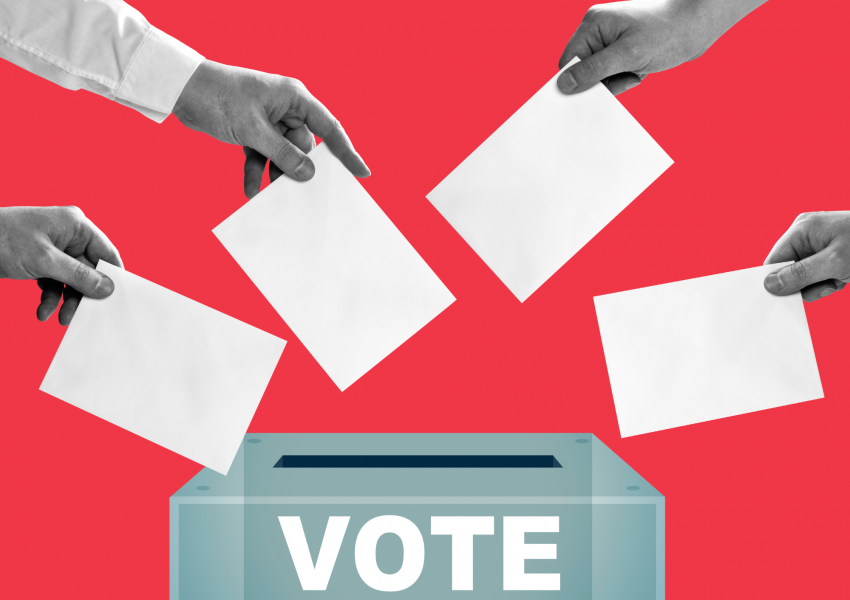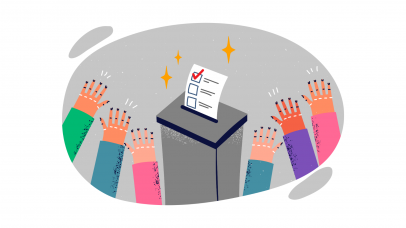
Ethical Violations of Candidates Dominate 2019 Elections in Bengkulu
In the 2019 elections, four provinces recorded the highest number of violations, according to the Election Supervisory Agency (Bawaslu). The province with the most violations is East Java with 10,006 cases, followed by South Sulawesi with 806 cases. The next ones are West Java with 582 findings and Central Sulawesi with 554 findings.
The total number of cases recorded by Bawaslu is 23,501, consisting of reports of 4506 cases and findings of 18,995 cases. Of all these, 20,999 cases were registered, while the remaining 2,502 cases were not registered. The violations consisted of 16,427 administrative cases, 426 violations of the code of ethics, 2,798 criminal violations, and 1,518 violations of other laws.
Even so, not all incoming violations were successfully handled by Bawaslu. The institution only handled 16,134 administrative violations, 373 code of ethics violations, 582 criminal violations, and 1,475 cases of other legal violations. In addition, there are at least 2,578 cases that were eventually categorized as non-violations.
Bawaslu also issued 345 rulings of election-related crimes, mostly in South Sulawesi with 41 rulings, followed by Central Sulawesi and North Sumatra, each with 24 rulings, West Nusa Tenggara with 21 rulings and North Maluku with 20 rulings. In addition, Bengkulu Province is among the regions that have the highest number of election-related violations.
There are at least 5 forms of violations recorded by Bawaslu. These include 119 administrative violations, 16 criminal violations, 27 other violations, and 80 non-election cases. During the 2019 Election, ethical violations in Bengkulu reached 139 reports.
Of the total reports, the violations mostly occurred in Bengkulu City with 121 cases, followed by Rejang Lebong with 6 cases and Mukomuko with 4 cases. Bengkulu Province and Kaur each recorded 3 cases of violations, while Central Bengkulu and North Bengkulu submitted 1 case, respectively.
The perpetrators of ethical violations vary, ranging from candidates, campaign teams, and political parties, to election organizers. The violations include the installation of campaign props (APK), administration, violations of neutrality and code of ethics, as well as reports of unknown forms of violations.
Legislative candidates were the most reported violators in the 2019 elections in Bengkulu Province, especially related to violations of APK installation.
As stipulated in the Regulation of the General Election Commission (KPU) of the Republic of Indonesia Number 28 of 2018 concerning "Amendments to General Election Commission Regulation Number 23 of 2018 concerning General Election Campaigns," campaign props are all objects or other forms that contain the vision, mission, program, or other information of election participants.
The props may contain symbols or image signs of election participants, which are installed for campaign purposes aimed at inviting people to vote for certain Election Participants, as stated in Article 1 paragraph 28.
In addition, the campaign props must at least contain the vision, mission, and program of the election participant. The participants must also prioritize the use of recyclable materials for the props.
APKs that may be used in accordance with the provisions of Article 32 of KPU Regulation Number 33 of 2018 concerning "Second Amendment to General Election Commission Regulation Number 23 of 2018 concerning General Election Campaigns," include billboards, LED screens, and banners. Each of these props has provisions in its size.
In its implementation, participants and organizers are allowed to install APK in public places only during the campaign period. For political parties that violate these campaign provisions, administrative sanctions may be imposed in the form of written warnings, taking down the props, and stopping campaign advertisements in print media, electronic media, online media, social media, and broadcasting institutions.
"Ambition and a strong desire to win often encourage election participants, especially candidates, to win the election and secure a political position by all means, including by violating the ethics. This is one of the causes (why violations are still rampant during elections)," Wahyu Widiastuti, a doctoral candidate specializing in Political Branding at Universiti Malaysia Terengganu (UMT), explained.
Ethical violations committed by candidates in Bengkulu City were found in 81 cases, of which 34 cases occurred in 2018 and 47 cases occurred in 2019. Violations related to campaign prop installation are the most common cases, reaching 69 cases, with the most frequent location in Kampung Melayu District with 25 cases.
In addition to ethical violations, the most obvious cases found by Bawaslu were criminal violations. Throughout the 2019 elections, criminal violations occurred in 6 regions in Bengkulu Province, including North Bengkulu. In this region, there were two types of criminal violations, one of which included criminal violations of campaign prop installation that occurred during the campaign period.
In Kepahiang, there were 3 cases of criminal violations of money politics that occurred during the campaign stage, with election participants being reported to Bawaslu. In Bengkulu City, there were two cases of criminal violations related to campaign prop installation that occurred during the campaign period, committed by political parties and local government officials.
Meanwhile, in Lebong, Bawaslu recorded one case of a criminal violation, in which a political party organized a campaign during the quiet period. In Rejang Lebong, of the six criminal violations, two were categorized as findings, which were committed by political parties and candidates, and were related to the installation of props. The remaining three reports were criminal violations of money politics reported by the public. However, the local Bawaslu did not specify who was the reported party.
In Seluma, there were only 2 reports of criminal violations, one committed by the winning team with an unknown incident category, and the other one was in the form of administrative criminal violations found by Bawaslu, with an unknown perpetrator.
Not only ambition, Widi continued, another factor that causes violations during elections can also be caused by political pressure. The election period is a competitive and tense period. Not a few of the candidates feel this pressure, both the newbies and the incumbent candidates who are trying to maintain their seats, so they want to achieve their political goals by all means.
"The candidates feel the most pressure from their financial backers. Also, the candidates may feel distrustful of the existing system, so they’re not sure they will win if they don't cheat," she said.
Widi also believes that violations can occur due to a lack of knowledge and strict rules about political ethics, both from candidates, campaign teams, and supporters. So far, election organizers have only given administrative sanctions or removal of campaign props, but there were no binding sanctions.
"This drives the candidates or election participants to commit violations due to the absence of serious and harsh sanctions. If the rules are more strict, people might think twice before committing a violation. For example, if they were caught violating, they would be punished by being dropped out of the candidacy and would not be allowed to participate for up to several periods. This will certainly encourage election participants to be more careful and maintain their integrity during the election," she explained.
Widi emphasized that whatever type of violation is committed, it is still a violation, and thus cannot be justified. A healthy democracy requires candidates and politicians with integrity, transparency, and responsibility. The public must always monitor and criticize the actions of politicians and support ethical and fair political practices.
Addressing violations during elections requires serious efforts from various parties, including the government, electoral supervisory bodies, political parties, legislative candidates, and the public. Transparency, strict supervision, better political education, and active community participation in the electoral process can help minimize violations and ensure fair and corruption-free elections.
Even so, Widi was positive that not all legislative candidates or politicians violate ethics during elections. "So, voters must be smart to pick which candidates to support. Voters should not give their support just because of money politics or pragmatism," she concluded.
For the 2024 elections, KPU no longer regulates sanctions for campaign violations committed by the participants. This is regulated in KPU Regulation Number 15 of 2023 concerning Campaigns published on July 17. In this regulation, the regulation of sanctions is fully handled by Bawaslu, the Police, and the Prosecutor's Office.
Previously, in regulation Number 23/2018, the KPU regulated several types of sanctions for violators of campaign provisions, ranging from written warnings, eliminating campaign materials, taking down campaign advertisements, and prohibiting ministers and regional heads from campaigning, to totally stop the campaign.




